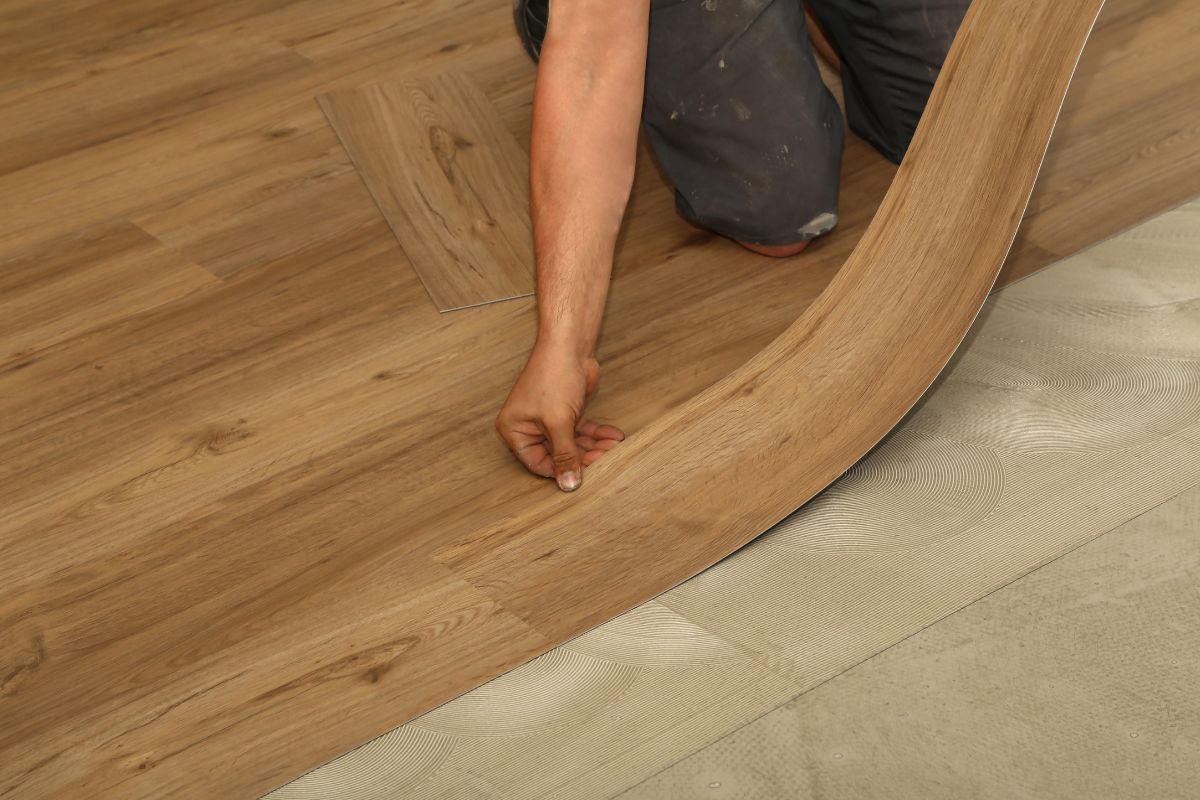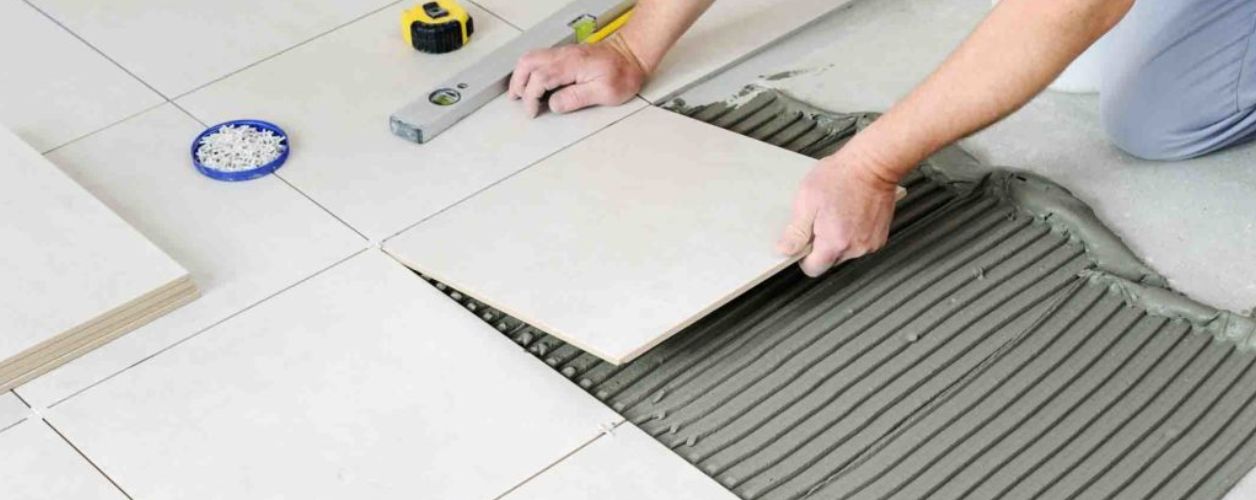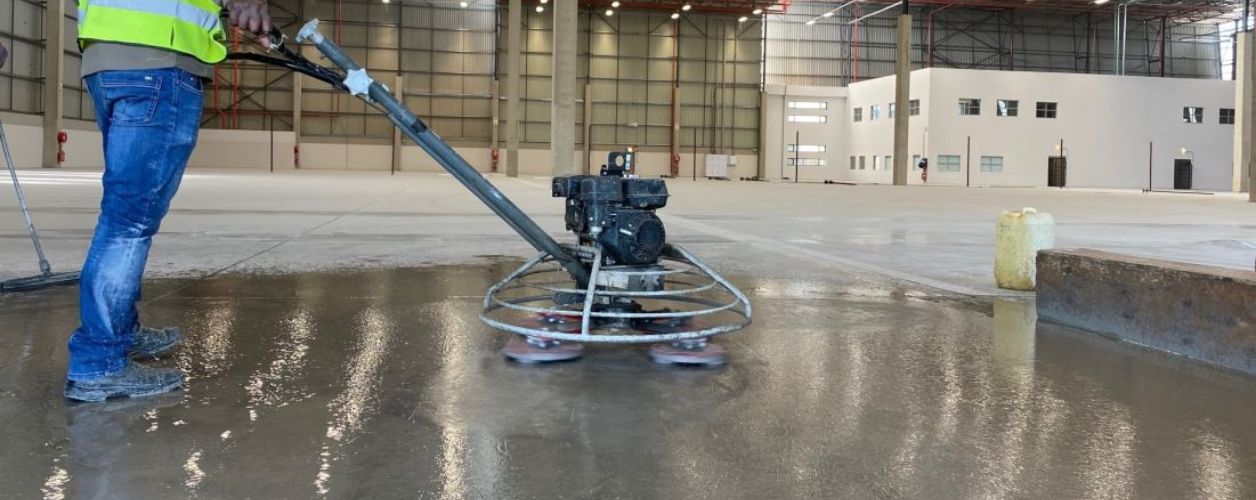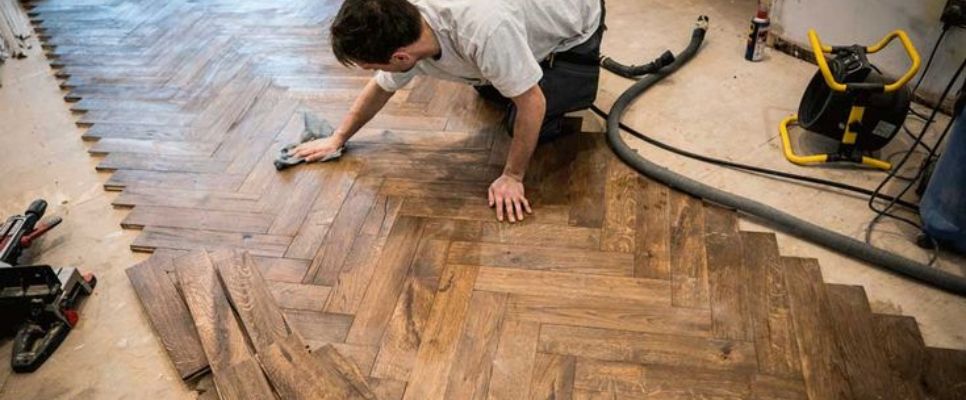How Much Does Vinyl Flooring Cost? A New Guide For Planning
Vinyl is one of the flooring materials in demand for some good reasons. This is one of the most economical and versatile flooring available for residential and commercial settings, and it embodies durability, water resistance, and ease of maintenance. The vinyl flooring cost depends on material types, quality, and installation methods.
In Australia, generally, vinyl flooring comes between $30 to $90 per square meter. Sheet vinyl is the cheapest and luxury vinyl planks (LVP) and tiles (LVT) are more expensive. Extra costs are added for the installation design, underlayment, and floor preparation. DIY installation may save some money, but a professional installation will ensure it lasts longer. Vinyl flooring is, by far, the cheapest final flooring option in very high-traffic and wet areas when compared with timber or tiles. This guide helps you understand the average vinyl flooring cost in Australia.
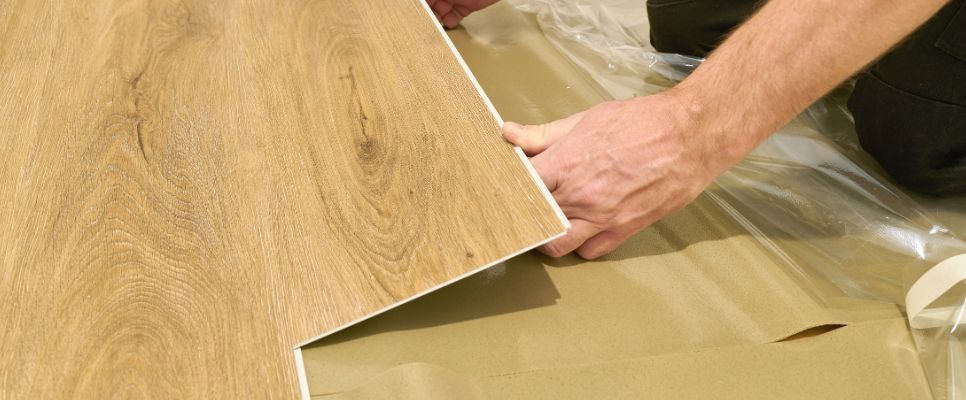
Different Types Of Vinyl Flooring And Their Installation Cost
Vinyl flooring is cheap and easily available with a broad range of designs. Here are the popular types:
1. Vinyl Sheet Flooring
This comes rolled out in large forms, making it perfect for areas prone to moisture, such as bathrooms or kitchens.
- Cost: $10-$30 per m2 for materials; installation ranges anywhere from $30-$40 for each m2.
2. Vinyl Plank Flooring (LVP - Luxury Vinyl Plank)
It looks like hardwood, visually giving the most realistic textures and colours. It is waterproof and scratch-resistant making it suitable for high-traffic areas.
- Cost: $20-$70 per m2 for materials, installation cost from $30-$80 per m2.
3. Vinyl Tile Flooring (LVT - Luxury Vinyl Tile)
It resembles stone or ceramic tiles. Peel-and-stick or click-lock installation types are there.
- Cost: $20-$80 per m2 for materials; installation costs $30–$60 for each m2.
4. Rigid Core Vinyl Flooring (SPC & WPC)
- SPC (Stone Plastic Composite): Extremely durable with a stone-based core.
- WPC (Wood Plastic Composite): Softer and more comfortable underfoot.
Cost: $30-$80 per m2 for materials; installation costs $30 to $70 per m2.
Installation Costs Overview
- DIY Installation: That saves $10-$30 per m2.
- Professional Installation: This goes anywhere between $20 and $70 per m2. depending on its type and complexity.
- Subfloor Preparation: Additional $10-$30 per m2 if required.
Most people prefer using vinyl flooring as a cheap and cost-effective option for easy maintenance and long-term durability.
Cost Of Vinyl Flooring Subfloor Preparation
The purchase of the subfloor is an essential factor in installing any flooring such as vinyl. It guarantees a smooth, stable, long-term surface. The cost consideration of framing generally includes the condition of the existing floor, requirements of materials, and labour costs. The cost estimates for the same are as follows:
1. Subfloor Leveling
- Minor Leveling (Self Leveling Compound) – $10 to $25 per square meter
- Major Leveling (Concrete Grinding or Major Patching) – $30 to $50 per square meter
2. Old Floor Removal
- Carpet Removal – $3 to $8 per square meter
- Tile Removal – $30 to $50 per square meter
- Removing Hardwood or Laminate – $15 to $40 per square meter
3. Moisture Barrier Installation
- Basic Moisture Barrier (Plastic Sheet/Primer Coating) – $5 to $15 per square meter
- Advanced Moisture Barrier (Epoxy/Specialized Sealers) – $20 to $40 per square meter
4. Underlayment Installation
- Foam or Cork Underlay Installer – $5 to $10 per square meter
- Plywood Underlay (for uneven or damaged subfloors) – $20 to $40 per square meter
5. Floor Repairs (if Required)
- Crack or Hole Repairs – $10 to $30 per square meter
- Joist or Structural Repairs – $50 to $150 per square meter
Total Estimated Cost
The subfloor preparation generally costs anywhere from $20 to $100 per square meter, according to the complexity of the job. Such preparation for instance, if say may be 50 m2 in area, to prepare such a surface should cost between $1,000 and $5,000. Hiring a professional vinyl flooring expert would lessen problems later by proper preparation of the flooring.
Cleaning And Maintenance Of Vinyl Flooring
Daily Cleaning
- Sweeping or vacuuming: It is generally the best dust and debris removal method to use a soft broom or vacuum without a beater bar to avoid scratches.
- Damp mop: Use a microfiber mop along with warm water and gently clean the vinyl floor for regular cleaning purposes.
- Spot Cleaning: Immediately wipe the undesirable material with a wet cloth to avoid a permanent stain on the floor.
Weekly & Monthly Upkeep
- Deep cleaning: Use a specialty vinyl floor cleaner and mop to eliminate dirt. Never use strong chemicals such as ammonia or bleach. Do not leave excess water, as excess water may seep in through seams and destroy the glue used in the floor construction; hence it is always moistened and not used to wring the mop entirely.
- Protecting Furniture: Felt pads should be used under the legs of furniture to avoid scratches on the surface. Also, avoid using rolling castors over vinyl floors.
Long-term Care
- Prevent Dents: Prevent the flooring from getting dented by not dropping heavy objects onto it.
- Preparation against Sunlight: To avoid exposure to UV rays, which make a space fade over a long period, avoid allowing direct sunlight into a room by using curtains or blinds.
- Use Entry Mats: Entrance doors must be provided with mats to trap dirt, soil, and other grime that otherwise might find their way to the surface and create scratching marks there.
Things You Should Not Do
- No Abrasive Scrubbers: Steel wool or brushes of hard bristles create rough places that damage the protective layer.
- Wax or Polishes: Leave them out. Vinyl flooring doesn't need waxing; it leads to buildup and dulls the finish.
- No Steam Mops: The heating damages the vinyl and softens the adhesives. Regular maintenance works for the better life span of such kinds of floors as well as for a new and shiny look for a long time.
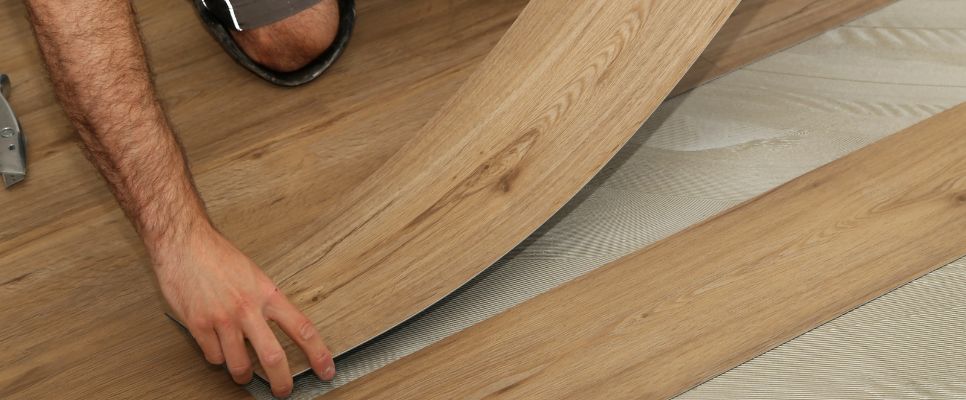
Comparison Between Vinyl Flooring Vs Other Flooring Options
Vinyl Vs. Laminate Flooring
- Although both vinyl and laminate flooring are affordable flooring options, vinyl has a price range of $30-$90 per square meter, and laminate of $20-$80 per square meter.
- There is a difference in durability between laminate and vinyl.
- Vinyl is 100% waterproof and suitable for all wet areas, whereas laminate is water-resistant and cannot be regarded as waterproof.
- Installing both types of flooring is a DIY job, but vinyl is easier to install because it bends a little better. Vinyl flooring installation can be done on one's own.
Vinyl Vs. Hybrid Flooring
- Hybrid, on the other hand, comes at a higher price, at $40-$120 per square meter. But hybrids truly offer a little more.
- The durability of the hybrid is supposed to be even more superior because it combines both laminates and vinyl.
- A thicker core makes hybrids warmer and rigid, while vinyl feels softer on the foot.
Vinyl Vs. Carpet Flooring
- The carpet price can vary between $30 and $150 per square meter depending on material and quality; in other words, vinyl is cheaper and more durable than carpets.
- The maintenance is easier with vinyl, which does not stain much, while carpets collect dust and therefore need to be deep cleaned frequently.
- The carpet is warmer and reduces more noise than vinyl; in turn, vinyl requires less maintenance and is pet-friendly.
- A laminate or vinyl is a good way to stay budget-conscious instead of carpets.
- Much can be said for waterproofing belonging to a vinyl floor and even hybrids but not carpets.
- However, the carpet is the most comfortable to walk on.
Hybrid is the best one in terms of durability, while vinyl is best for budget and water resistance, laminate is purely budget-friendly in terms of looks, and the carpet is soft and cozy.
Conclusion
Durable and beautiful, Vinyl flooring is an economical choice for many locations. Its water-resistant properties also make it a popular type of Bathroom Flooring. The final price depends on the type and quality of vinyl, installation complexity, and any subfloor preparation needed. Generally, you can expect costs to range from $30 to $100 per square meter, inclusive of materials and installation.
While a DIY project might save some dollars, professionalism ensures durability and an impeccable finish. Keep in mind that tasks like installing underlayment, removing old flooring, or performing necessary Floor Repair will incur additional charges.
Ensure you get the best result by comparing quotes from qualified Floor Installers, hiring a trustworthy contractor, and choosing a product that offers a good balance of cost and durability. By weighing its benefits against other options like Bamboo Flooring, you can be confident that you are making a win-win investment for your home.

